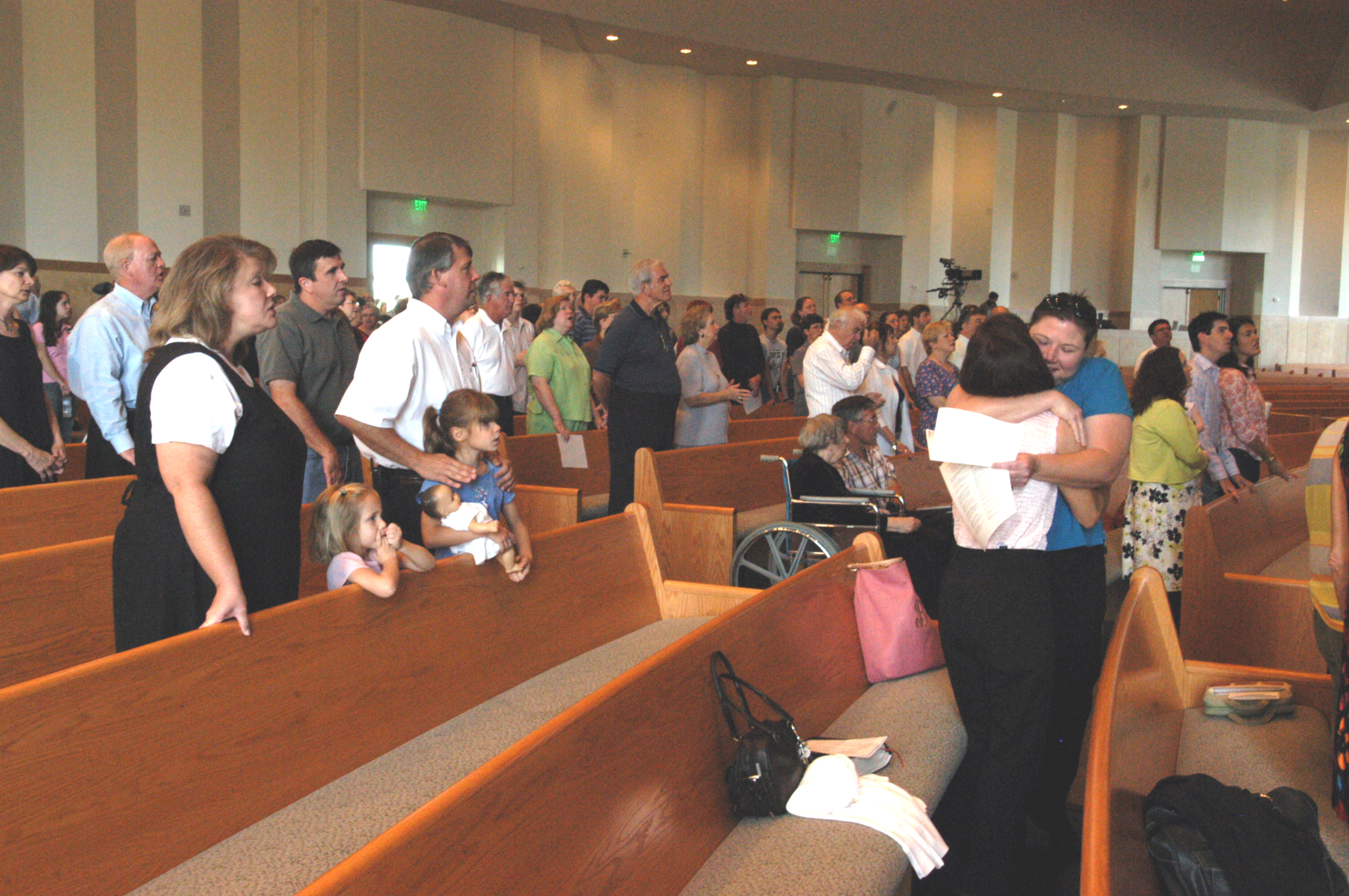
NEW ORLEANS (BP)–They sang from a screen fueled by a borrowed generator. They hugged friends and waved to others across the sanctuary. And they asked the all-important post-hurricane question: “How did you do?”
It was the first time that First Baptist Church — significantly smaller in number but no less enthusiastic –- met for worship since Hurricane Katrina tore through New Orleans.
The church is built up enough so that the floodwaters stopped at its doorstep. But the church didn’t escape damage. Winds ripped away about a third of one building. Rain poured into Sunday School classrooms. Offices and church records were destroyed. Parts of the buildings that escaped damage soon showed signs of growing black mold. Weeks after the storm, there is still no electricity.
“Everything around us stood in four to six feet of floodwater for weeks. The grass is dead, the trees are dying,” said David Crosby, pastor of First Baptist.
But when the first worship service since Katrina was held Oct. 9, Crosby offered a prayer of thanks to “the God of storm and wind and rain.” First Baptist New Orleans will recover, but many other churches in the area may not.
“Many of our churches are out of business. We have 27 churches that have been destroyed. If they can start up again at all, they’ll have to be changed,” said Joe McKeever, director of missions for the Baptist Association of Greater New Orleans. “We’ve had small churches trying to maintain large buildings. They were using all their resources to keep the buildings going. They’ve lost everything.”
There’s no way to know what these churches will look like in the future. Weeks after the storm, some pastors and leaders have not yet returned to their church buildings. Most churches are just beginning to think about recovery.
The Adopt A Church program sponsored by the North American Mission Board may be the only thing that saves many of the New Orleans congregations, McKeever said.
“We’re figuring out exactly what all that will mean. Each church is going to need something different,” he said.
Even churches that escaped damage will need aid.
“They’ll be able to minister to others in the area and they’ll be able to house groups coming to help other churches, but they will need help doing that,” McKeever said.
Vieux Carre Baptist Church, a tiny storefront church sandwiched between bars and voodoo stores on Dauphine Street in the French Quarter, had one worshiper the Sunday it reopened six weeks after the storm. But while church members have left the city, there is still much to do.
“We have showers. We have beds to house 50,” said Greg Hand, pastor of Vieux Carre. “This church has the opportunity to change a paradigm. This is the time to do something.”
The little church has no income. Hand and his wife lost their home in the post-hurricane flooding and now live in an upstairs room at the church. But Hand still plans to house and feed volunteer groups coming to help other churches. At the same time, he’s asking volunteers to help his church.
“We have a little damage that needs to be repaired, but mostly we need prayer-walkers and kindness givers. If we miss this opportunity [in the French Quarter], there will be no change here. We’ll be fighting against reinforced spiritual darkness.”
–30–

















